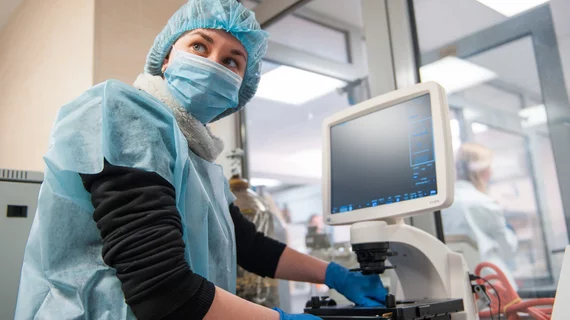Magnetoferritin injection system may improve cancer imaging, diagnostic accuracy
German and Russian researchers have developed a new injection diagnosis system based on magnetoferritin that may improve MRI accuracy, cancer diagnosis and treatment options, according to a press release published Aug. 24 by the National University of Science and Technology (NUST) MISiS in Moscow.
The research was published in the March issue of Advanced Functional Materials.
Unlike other contrast agents, including gadolinium that can reduce accuracy, magnetoferritin is completely compatible with the human body, the researchers explained.
The compound, consisting of the intracellular human protein ferritin and a magnetic nucleus, was developed by the researchers to capture tumor cells from spreading with blood flow.
Additionally, the high concentration of magnetoferritin in tumor tissue made it possible to obtain a hypoallergenic contrast agent that is perfectly compatible with the human body, wrote study author Ulf Wiedwald, PhD, a visiting professor at the NUST MISIS Biomedical Nanomaterials Laboratory, and colleagues.
"As has been shown in a large number of studies, these [tumor] cells actively capture transferrin—the protein responsible for the transport of iron in the blood. The same receptors are capable of capturing the magnetoferritin as well,” Wiedwald said. “Once they get into the lysosomes of targeted cells, the magnetoferritin will further enhance the contrast signal.”
The injection diagnosis system may also allow for electromagnetic therapy to be conducted on cancerous cells when identified on an MRI, according to the researchers.

